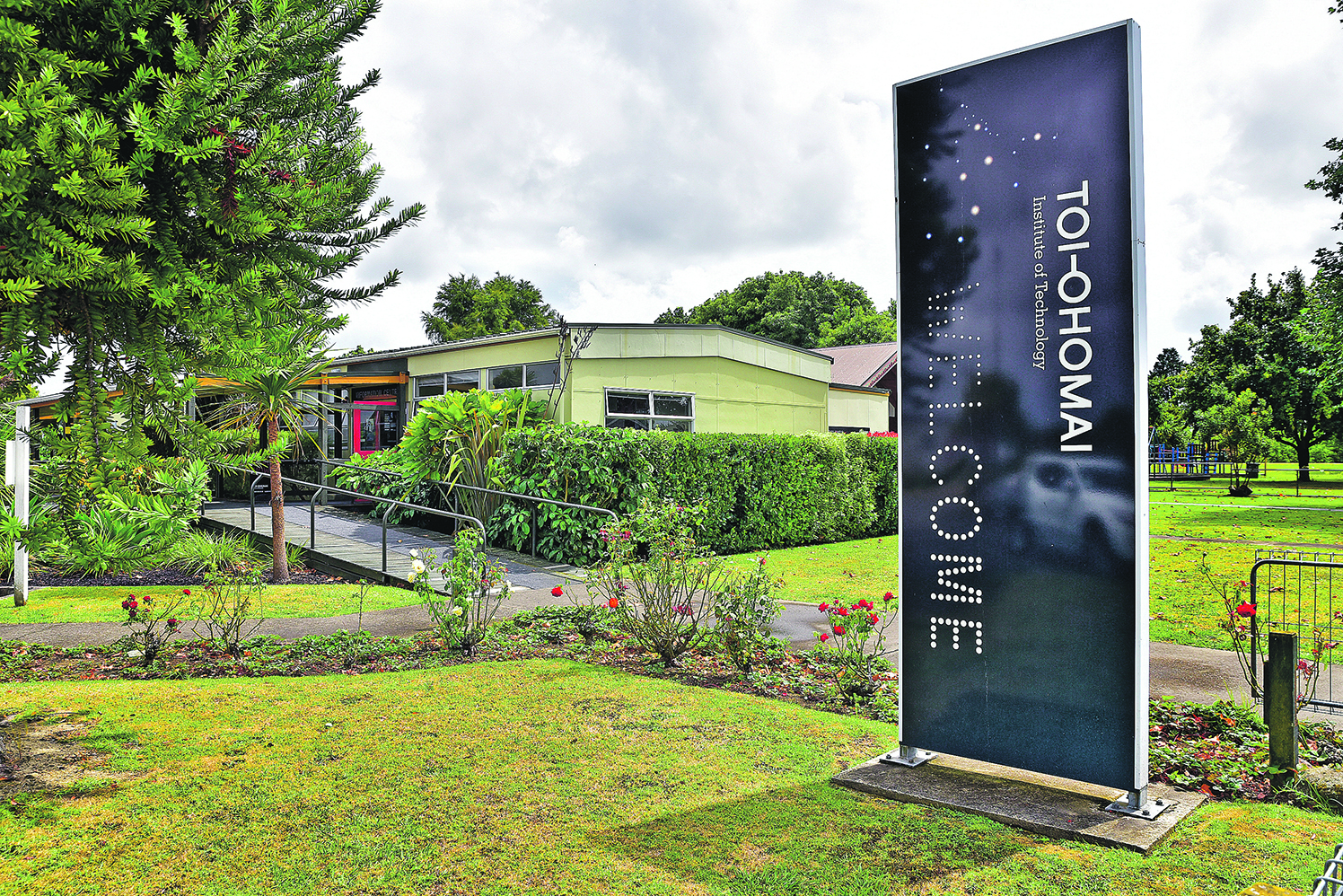Opinion: People across Aotearoa deserve thriving, regional polytechnics

.
■ Although vital to local economies, social cohesion, and community prosperity, polytechs are facing a lack of resourcing, ad-hoc management strategies, and uncertainty about their long-term viability, writes Ilmars Gravis.

Formed in 2016 from a merger between the Waiariki Institute of Technology in Rotorua, and the Bay of Plenty Polytechnic in Tauranga, the Toi Ohomai Institute of Technology provides for over 14,000 students (including more than 1400 international students) and offers courses at over 86 sites around the Waikato and Bay of Plenty region.
In fact, Toi Ohomai is the third largest of New Zealand’s polytechs.
Subjects offered include nursing, maritime studies, forestry, and tourism and travel.
Campuses are spread across Tauranga, Whakatāne, Taupō, Rotorua, and Tokoroa.
As a result of the Government’s Education and Training Ammendment Bill, Toi Ohomai has begun its transition back to a regional governance model and has already seen a reduction of 21 full-time positions and the discontinuation of 16 programmes across their campuses in several areas.
However, there is no guarantee that Toi Ohomai will remain a stand-alone institute, with financial viability within smaller rural communities served by Toi Ohomai a potential driver for further upheaval and instability.
It is also likely that the 42 percent of Māori students attending Toi Ohomai could be disproportionately affected by financial struggles and regional inequities after the disestablishment of Te Pūkenga.
At a time of record unemployment and job cuts due to government policy, opportunities for training, education, and a viable career path for rangatahi in the Bay of Plenty are more vital than ever.
The Education and Training Ammendment Bill aims to unwind the 2020 merger of the nation’s polytechnics into one entity (Te Pūkenga), with one of the goals to make the sector more “financially viable”.
A return to regional management may sound appealing on the surface, and in some cases be appropriate. However, without sufficient resourcing, support, and focus on educational outcomes, the neoliberal view of education as a profit-driven enterprise like any other commercial business will inevitably cause severe damage and harm to the staff and students of our essential and important regional education institutes.
This is backed up in documents released by Treasury under the Official Information Act (nzherald.co.nz 13.08.25).
According to Greens’ vocational education spokesperson Francisco Hernandez, the “lack of support and ad-hoc planning” of the disestablishment of Te Pūkenga had seen the sector, its workers and learners be “[thrown] to the wolves”.
“The cuts to courses, in-person training and teaching staff necessary for the government’s new model to add up are undermining vocational education for all learners,” (spinoff.co.nz 16.7.25).
Included in the proposed cuts at Toi Ohomai is the closure of the Waipa (Rotorua) campus – a dedicated training facility that currently operates a working wood manufacturing plant, described by a senior academic staff member in forestry and wood manufacturing as the only facility of its kind in the Southern Hemisphere offering timber machining and saw doctoring block courses in Aotearoa (scoop.co.nz 13.11.24).
According to Hernandez, mega-institute Te Pūkenga has lost over $80 million in funding and one in 10 staff as the nation’s largest vocational education provider prepares to be split into 10 polytechnics from the start of 2026.
Tertiary Education Union (TEU) rep Sharlene Nelson has expressed shock at revelations in an RNZ report that polytechnics around the country are expected to cut about 550 courses, up to 900 full-time equivalent staff and 30 delivery sites (rnz.co.nz 28.07.25).
The Government’s cuts to our polytechs have resulted in a reduction of classes, teachers and support for people trying to build their skills.
This means fewer opportunities for people out there and even less hope for those struggling under the cost-of-living crisis.
In addition, staff morale is plummeting, staff turnover is rapidly increasing, and students’ education is being disrupted and clouded by uncertainty.
The Green Party is calling on the Government to invest in the future of our communities by properly investing in our polytechs so they can provide people with opportunities to upskill, retrain and meaningfully contribute to communities
n Ilmars Gravis is co-convenor of the Ōpōtiki-Whakatāne branch of the Green Party of Aotearoa. To join your local Green Party branch contact us at [email protected] or go online at greens.org.nz/members
n Follow East Coast Greens on fb and Instagram